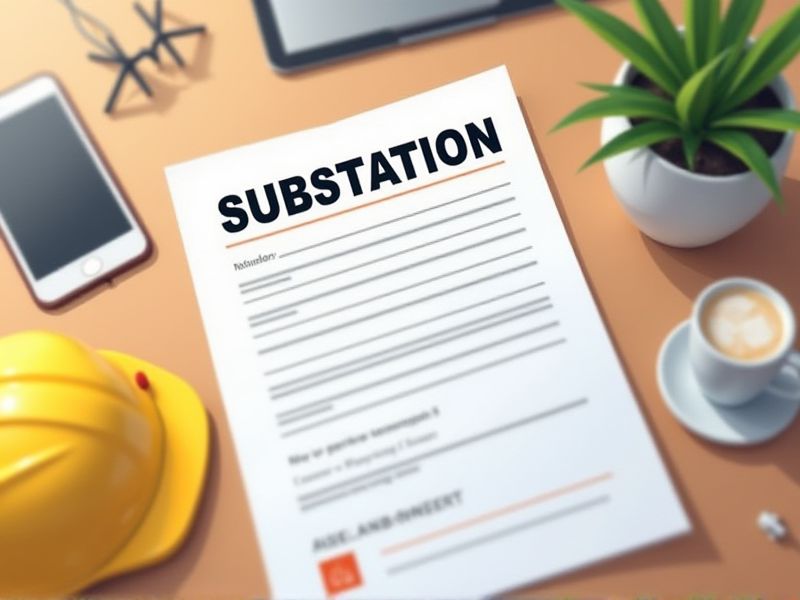
Substation Technicians play a crucial role in ensuring the safe and efficient operation of electrical substations, requiring a solid understanding of electrical systems. Certifications provide them with the necessary technical skills and knowledge to work effectively and safely in high-risk environments. Employers often require these credentials to comply with industry standards and mitigate potential hazards. Below are some important certifications that may be required for a Substation Technician.
OSHA 30-Hour Safety Certification
Substation Technicians face various electrical hazards, including shocks and arc flashes, which OSHA 30-Hour Safety Certification addresses through comprehensive training. The certification equips technicians with knowledge on regulatory safety standards, reducing the risk of accidents and ensuring compliance. Understanding hazard communication and proper personal protective equipment use curtails incidents and potential injuries. Employers benefit from fewer safety violations and improved workplace safety culture when technicians possess this certification.
NFPA 70E Electrical Safety Certification
Substation Technicians deal with high-voltage equipment, which poses significant electrical hazards; NFPA 70E Electrical Safety Certification ensures they understand safety protocols. The certification provides guidelines on safe practices, reducing the risk of electrical accidents and injuries. It enhances a technician's ability to identify electrical risks and implement preventive measures. Compliance with NFPA 70E is often required by employers to adhere to industry safety standards and regulations.
Arc Flash Awareness Training Certification
Arc flash awareness training certification is needed for substation technicians because it educates them on the potential hazards of working with high-voltage electrical equipment. It ensures they understand the critical safety protocols required to prevent serious injuries or fatalities. Certification equips technicians with the knowledge to identify and mitigate risks associated with arc flashes, thereby maintaining workplace safety standards. The training also helps in compliance with regulatory requirements, which can prevent costly fines and operational disruptions.
Lockout/Tagout (LOTO) Certification
Lockout/Tagout (LOTO) Certification is crucial for substation technicians because electric substations involve high-voltage equipment that poses significant risks of electrical shock or arc flash. LOTO procedures ensure that machinery and electrical circuits are properly shut off and not started up again prior to the completion of maintenance or repair work, which significantly reduces the risk of accidental energy release. By following the LOTO protocol, substation technicians can prevent workplace accidents and enhance safety on-site. Certification confirms a technician's knowledge and compliance with OSHA regulations, which are critical in maintaining both individual and team safety standards in high-risk environments.
NERC CIP Certification
NERC CIP Certification ensures that substation technicians adhere to critical infrastructure protection standards, enhancing cybersecurity and operational reliability. As the energy sector becomes more digital, certified technicians are better prepared to mitigate risks related to cyberattacks. Compliance with NERC CIP standards is often mandated by regulatory bodies, meaning technicians without certification might face restricted job opportunities. Enhanced knowledge and skills from the certification enable technicians to maintain and secure the electrical grid more effectively.
Substation Operations Training Certification
Substation Operations Training Certification ensures that substation technicians possess the essential skills and knowledge to safely manage and operate electrical equipment, minimizing the risk of accidents. Understanding current industry standards and technological advancements enhances a technician's ability to troubleshoot and maintain reliable power systems. Certification fosters adherence to regulatory and safety compliance, which is crucial for protecting both personnel and infrastructure. Gaining this certification often leads to career advancement and increased job opportunities within the electrical utility sector.
High Voltage Safety Certification
Substation Technicians work with high voltage equipment, which poses significant risks, making safety certification essential to mitigate electrical hazards. Certification ensures that technicians have the necessary knowledge and skills to handle live equipment safely, reducing the likelihood of accidents. High voltage safety training equips them to implement safety protocols and emergency procedures effectively. Compliance with safety standards also ensures legal and regulatory adherence, protecting both employees and employers.
Transformer Maintenance Certification
Possessing a Transformer Maintenance Certification increases a substation technician's efficiency by ensuring they thoroughly understand the equipment's intricacies. Proper certification reduces the risk of operational failures, as technicians are trained to identify potential issues before they escalate. This certification enhances safety protocols by equipping technicians with the necessary knowledge to handle transformers responsibly. Certified technicians often enhance the reliability of power supply systems, minimizing downtime due to their advanced skills.
SCADA System Operations Certification
Substation Technicians require SCADA System Operations Certification as it provides essential knowledge to handle the complexities of modern automated systems integral to energy distribution. Gaining certification ensures they can effectively monitor and control the substation equipment, thereby enhancing operational efficiency and safety. The certification educates technicians on the latest SCADA technologies, enabling them to spot and rectify issues promptly, reducing downtime risks. Employers prefer certified technicians due to their demonstrated expertise, which often leads to increased trust and potential career advancement opportunities.
First Aid/CPR Certification
Substation technicians often work in environments with high voltage equipment, increasing the risk of electrical accidents and injuries, necessitating first aid/CPR certification. Rapid response to electrical-related incidents can significantly improve outcomes and potentially save lives on site. Communication with emergency responders is more effective when personnel have first aid knowledge. CPR training equips technicians to sustain life until professional medical help arrives.
Summary
As a reader considering certification for a Substation Technician, you'll likely find that acquiring such credentials enhances your professional credibility and opens up career advancement opportunities. Certifications can lead to increased job responsibilities and potential for higher salary due to validated expertise. Employers often perceive certified technicians as more skilled, likely leading to greater trust and job security. Such qualifications often result in improved job satisfaction as they align with personal career goals and recognition.
